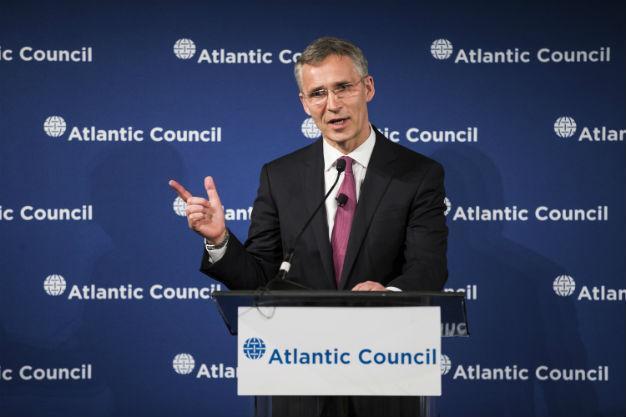Turkey pivotal in anti-ISIL effort, says NATO chief
WASHINGTON - Anadolu Agency

AA photo
Turkey’s assistance has been critical in efforts to counter the Islamic State of Iraq and the Levant (ISIL), NATO Secretary-General Jens Stoltenberg said April 6.“Turkey participates in the coalition fighting ISIL. Turkey provides military assets, but Turkey also provides infrastructure – bases, the İncirlik Base, and other facilities – for the efforts of the coalition fighting ISIL,” Stoltenberg said at the Atlantic Council think tank in Washington.
“Without Turkey it would have been much more difficult to, for instance, conduct many of the air strikes against ISIL,” the secretary-general added.
Crucially, Turkey is the NATO ally “most affected” by an influx of refugees prompted by conflicts in neighboring Iraq and Syria, Stoltenberg said.
“We are responding to the conflict in Syria by supporting Turkey – bordering Syria and Iraq, we have assurance measures, including the NATO presence in Turkey,” he said.
Around 2.7 million Syrians who have fled the country’s ongoing conflict are being sheltered in Turkey, while a NATO mission has been launched in the Aegean to stop the flow of migrants to the Greek islands, hoping to reach Europe.
Regarding Russia, Stoltenberg said Moscow did not pose an “imminent threat” to NATO security, but said it was investing in and using increased military capabilities, particularly in Eastern Europe.
“What we see is a more assertive Russia responsible for aggressive actions in Ukraine and willing to use military force – not only to invest in Russian military capabilities. We also see a willingness to use those capabilities to intimidate neighbors, to change borders in Europe – to annex Crimea, to destabilize eastern Ukraine, and to have troops in Georgia, Moldova, and so on. This is of course why we are responding,” he said.
Stoltenberg said NATO had made “significant progress” in its response efforts.
“NATO is becoming more agile, and we are increasing our readiness,” the NATO chief said, adding that it was “the largest reinforcement of our collective defense since the end of the Cold War.”
“NATO’s response force is now three times bigger than it was before with a brigade-sized high readiness force at its core,” he added.
Turkey’s downing of a Russian jet in November 2015 after it violated Turkish airspace “underlined just how important it is that we do our utmost military-to-military communications, to have expansive predictability, to avoid those kind of incidents. Dialogue is not weakness; dialogue is strength,” Stoltenberg said.
















